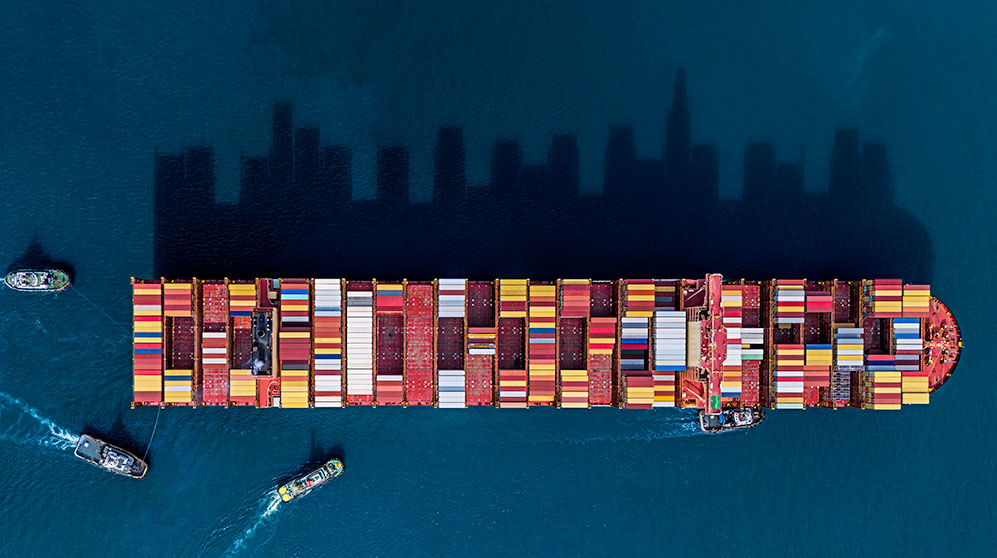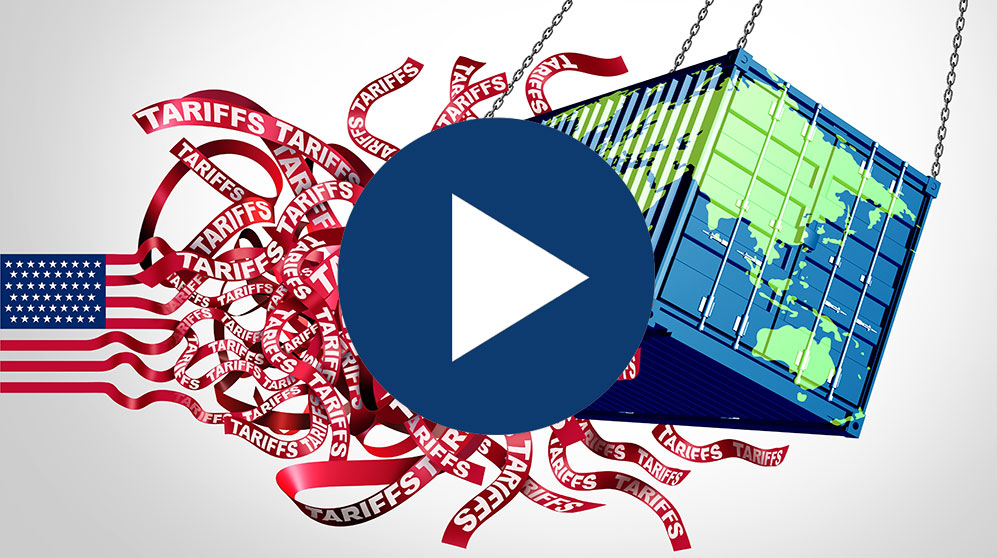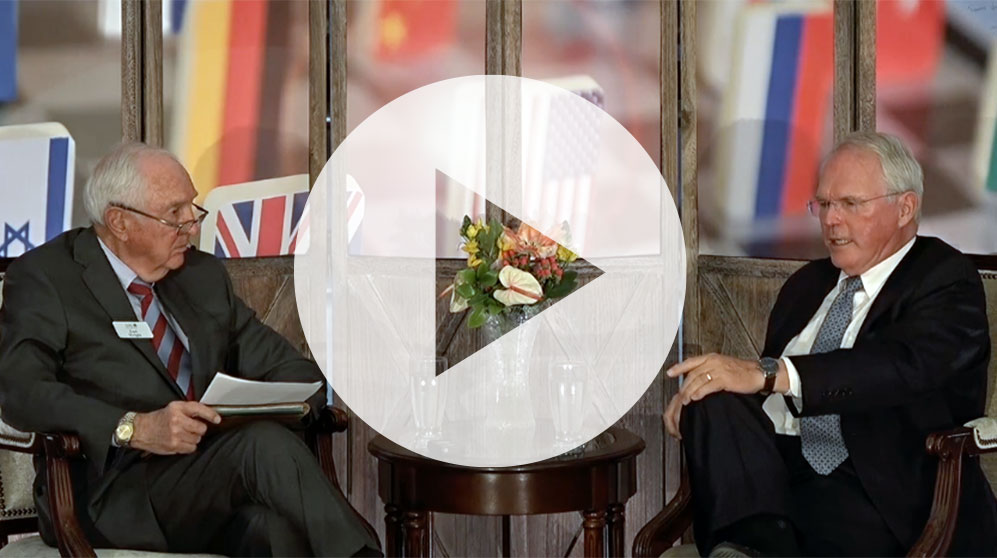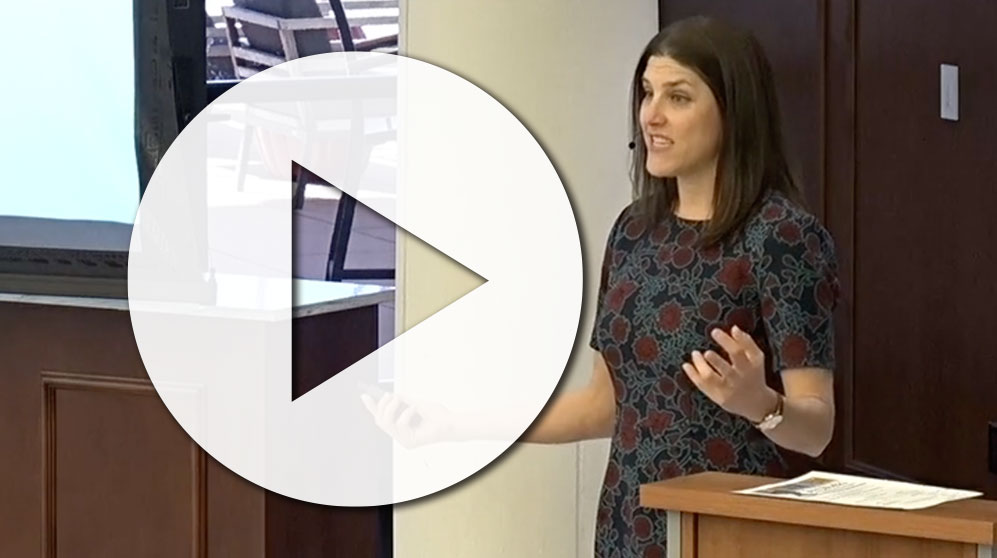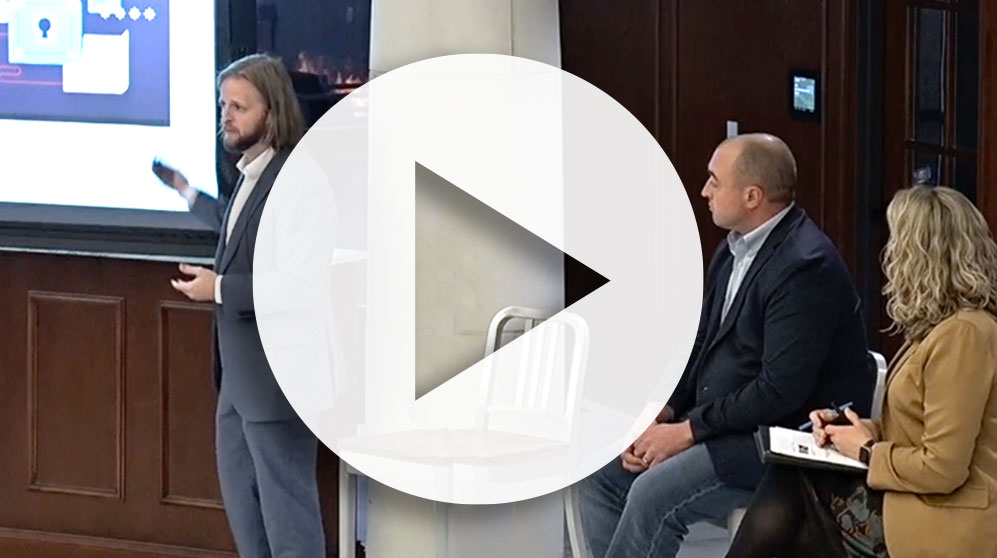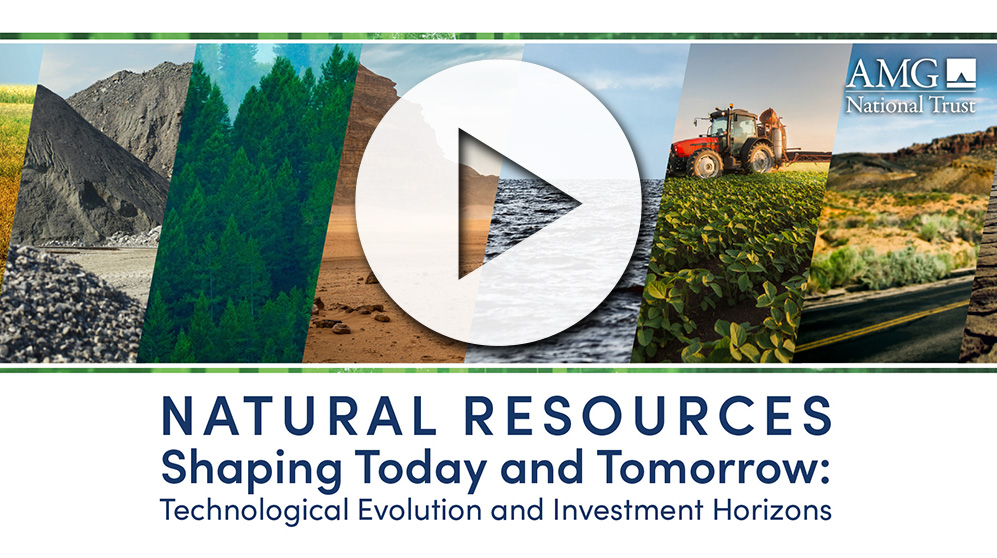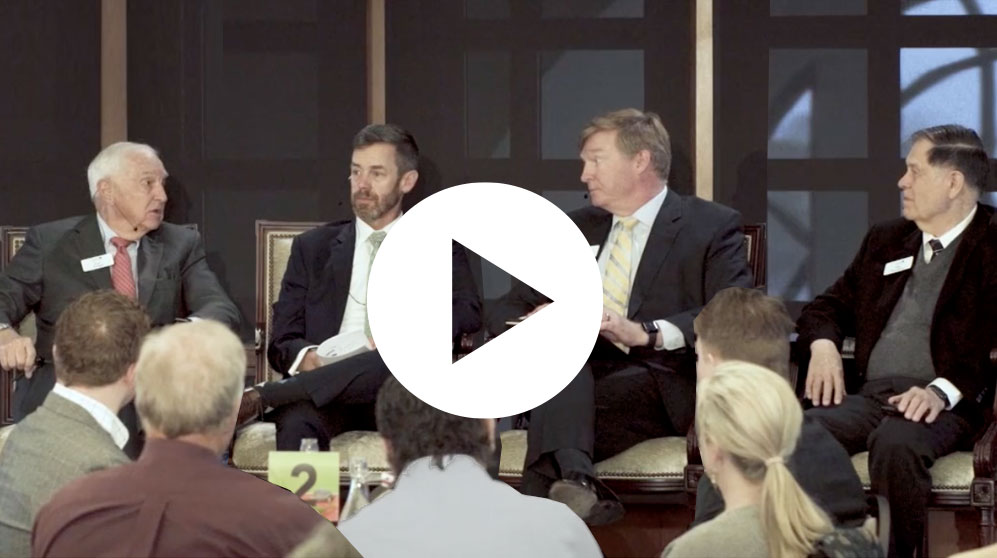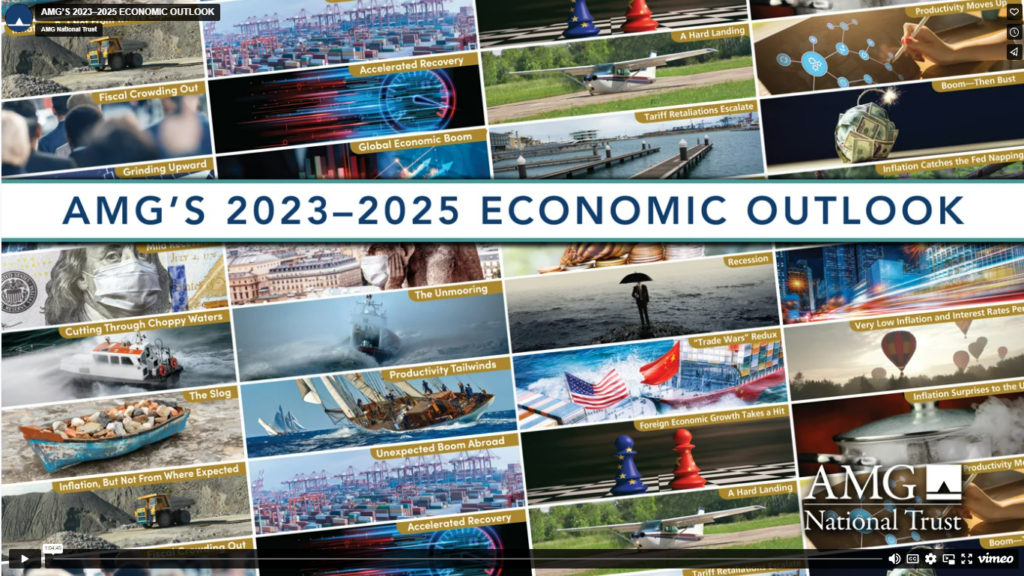The Future of Geopolitics and the Global Economy
• 7 min read
- Brief: Global Economy
Get the latest in Research & Insights
Sign up to receive a weekly email summary of new articles posted to AMG Research & Insights.
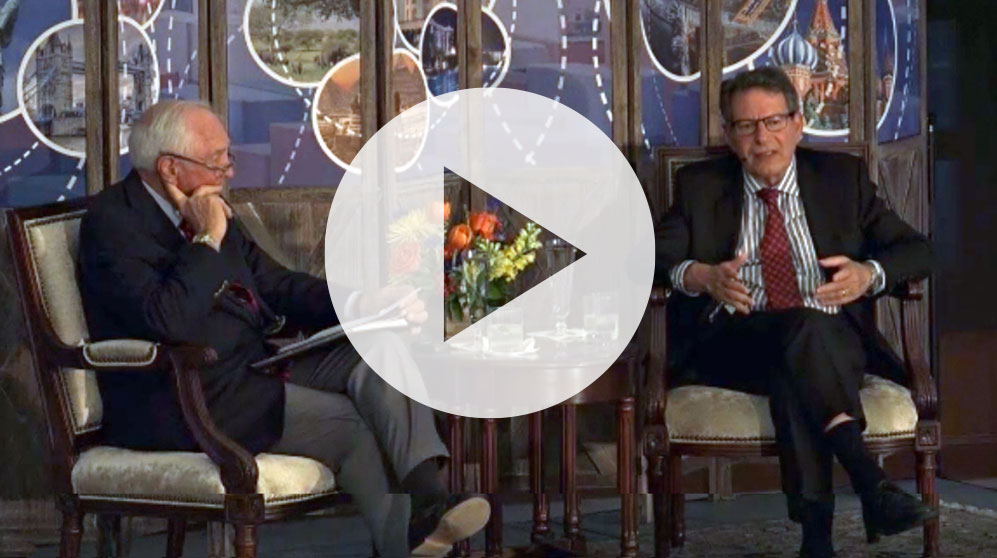
China uses geopolitical hotspots to its advantage, leveraging its growing military might to throw more weight against Taiwan while the United States and Europe are focused on the wars in Ukraine and Gaza. This summary from foreign-affairs expert Robert D. Kaplan came during a wide-ranging discussion on “The Future of Geopolitics and the Global Economy,” a June 18 event at AMG National Trust in Greenwood Village, CO. The discussion was moderated by AMG Chairman Earl Wright.
The United States and the Western world have been significant partners in China’s economic rise over the last 30-plus years, and a large part of the world has come to depend on trade with China to fuel their own growth. Despite this, relationships have turned rocky, and China seems to instead be drawing closer to other autocratic troublemakers across the globe.
At the same time, China is so interlinked to the United States through trade that its moves seem self-destructive when piled atop tariffs, inflation, control of rare resources, and other global threats. Xi Jinping, the ruler of China, knows all of this, Mr. Kaplan said, adding that this is where the story takes on “Shakespearean dynamics.”
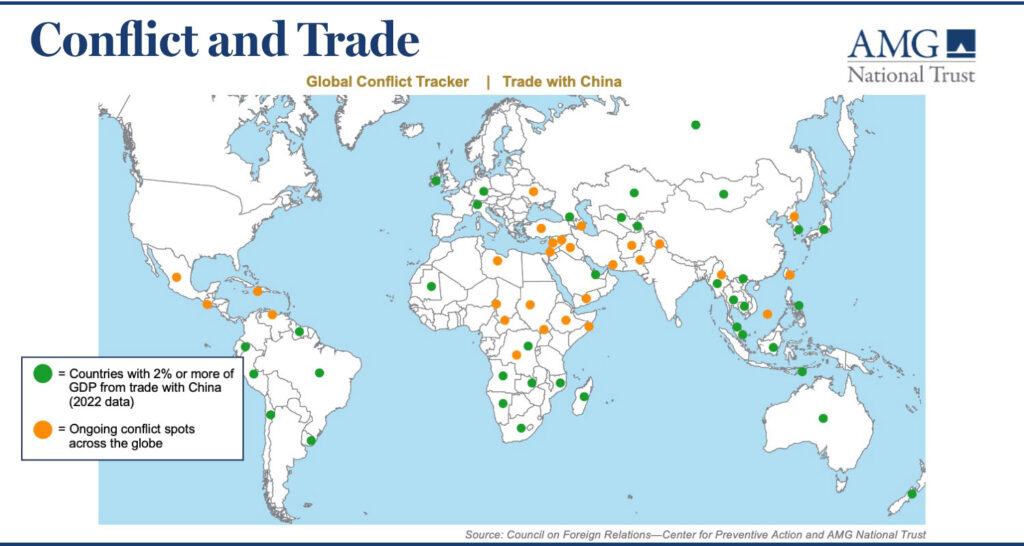
What’s Motivating China’s Moves?
Why is China upset with the United States when it is also part of their economic success?
China’s moves today are rooted in its past, Mr. Kaplan said. A people with thousands of years of culture, history, and language behind them nearly disappeared from the map in the late 19th and early 20th centuries as it devolved into an era of warlordism.
“The level of insecurity, the fear of chaos was enormous.”
That only reversed under the harsh and determined rule of its communist leadership.
Today, it is not enough for China that it has grown so wealthy, Mr. Kaplan continued. “Wealth is just a means to an end. … Thousands of years of history nearly disappeared. There is this sense of lost honor, of wounded prestige. They want to be a great power in the world.”
“And (China) took back Macau … in an economic sense, it took back Outer Mongolia. It got back Hong Kong and now it wants the jewel in its imperial crown—Taiwan.”
Surrounded by U.S. and Allies
Mr. Kaplan views China as being pragmatic and defensive, willing to deal with anyone who can further their interests, particularly if a region or nation has something it needs, such as natural resources.
The growth of China’s military, he added, is partly the result of them wanting to protect their own trade routes. The Chinese look at a map and become claustrophobic from all the U.S. allies around them, from Japan to South Korea to Taiwan all the way to the Philippines, Singapore, and Australia.
Avoiding the Brink So Far
Despite escalating military and political posturing, Mr. Kaplan said, the United States and China have “not gotten to the point of staring into the abyss” of what a war over Taiwan would mean.
“An actual high-end military conflict” could have a devastating effect on financial markets globally, and impact everyone, he warned, recalling how the United States and Russia stared into that abyss of nuclear war during the 1962 Cuban Missile Crisis and immediately backed away, installing a telephone hotline between the White House and Kremlin, agreeing to arms treaties and eventually détente.
Tariffs have been touted by some as a means to sway China, but would they make an impact? He argued that tariffs are dangerous because they destabilize trade relationships and reduce both nations’ economic interdependence, which makes conflict even easier.
Other Global Points of View
The discussion also delved into other geopolitical hotspots. Here are some of the highlights:
Russia
President Vladimir Putin is trying to create a buffer zone of countries between Russia and the 32 member nations in the North Atlantic Treaty Organization (NATO), Mr. Kaplan said, calling it “a traditional sphere of influence so he can set red lines for what these countries can do.”
Ukraine is one of those countries. In Mr. Kaplan’s estimation, Russia will always risk more, spend more, and care more about Ukraine than does the United States. In Mr. Putin’s imperial strategy, Ukraine is still the Little Russia from the czarist era. “Russia with Ukraine is a great European power,” Mr. Kaplan said. “Russia without Ukraine is merely a Eurasian power, without a serious foothold in Europe.”
But if the West had ceded Ukraine to Russia years ago, given Mr. Putin’s aggressive nature, Poland could be the current battleground.
China sees the U.S. as the ultimate competitor in the world, and they see Russia as a means to weaken us. It’s in China’s interest to support Russia because it distracts the United States from what China is doing elsewhere in the world, he said.
Iran
Change is coming and could help ease Middle East tensions. The Islamic nation’s theocratic regime will be gone within five years, Mr. Kaplan predicted. “The Iranian regime is completely unpopular,” adding that most of its citizens are irreligious. There also have been years of mass protests over women’s rights and an economy crippled by international economic sanctions. “Maybe 80% of the population hates the regime. It’s a very unstable regime.”
Iran’s leaders are tired and old, he said, likening them to a clique of stodgy, authoritarian North Koreans ruling a vibrant, democratic South Korea.
Trouble is also brewing among Iran’s clerical leadership, Mr. Kaplan said, suggesting a split that will bring about the regime’s downfall. The supreme leader, Seyyed Ali Hosseini Khamenei, is 85 and in poor health, and it is unclear who will succeed him. His expected successor, former President Ebrahim Raisi, recently died in a helicopter crash along with the country’s foreign minister, creating a power vacuum.
“History tells us that even the most unpopular regimes can stay in power a long time if the governing elites are united,” Mr. Kaplan said. “But if you start to see splits … the entire system itself becomes endangered.”
A more secular government, Kaplan argued, would ease tensions throughout the Middle East. Iran’s support for terrorist groups bent on destroying Israel, like Hamas in Gaza and Hezbollah in Lebanon, would probably lessen if not end. And the Shia-Sunni split among Muslim nations would also ebb. Iran’s people are mainly Shia while the other great Mideast Arab powers like Egypt and Saudia Arabia are Sunni.
“That’s why I’m not a total pessimist about the Middle East,” Kaplan said, hoping that eventually a “grand bargain” will be reached, a treaty normalizing relations between Saudi Arabia, Iran, and Israel. “Imagine a new Iran that won’t be anti-Western, anti-Israeli, with 85 million people, urbanized, educated, ready to be unleashed into the global economy with all of the genius of the Persian civilization.”
Trump vs. Biden
If former President Donald Trump is elected in November, “it helps Putin immensely,” Mr. Kaplan said, contending Trump does not value Ukraine, Europe, or NATO. Tensions with China will likely increase, and Mr. Trump will probably fully back Israeli President Benjamin Netanyahu. If President Joe Biden is reelected, Mr. Kaplan expects U.S. foreign policy will be less political and more aggressive, meaning Mr. Biden will do what he thinks is best without much regard for how politically popular his actions are because he cannot run for a third term. He even predicted that CIA Director Bill Burns, a very “adroit” career diplomat, will replace Tony Blinken as secretary of state.
GLOBAL PERSPECTIVE & WEALTH MANAGEMENT EXPERTISE
At AMG, we plan comprehensively around each client’s unique circumstances, helping clients to make prompt and informed decisions to benefit their financial well-being.
Not a client? Find out more about AMG’s Personal Financial Management (PFM) or to book a free consultation call 303-486-1475 or email us the best day and time to reach you.
This information is for general information use only. It is not tailored to any specific situation, is not intended to be investment, tax, financial, legal, or other advice and should not be relied on as such. AMG’s opinions are subject to change without notice, and this report may not be updated to reflect changes in opinion. Forecasts, estimates, and certain other information contained herein are based on proprietary research and should not be considered investment advice or a recommendation to buy, sell or hold any particular security, strategy, or investment product.
